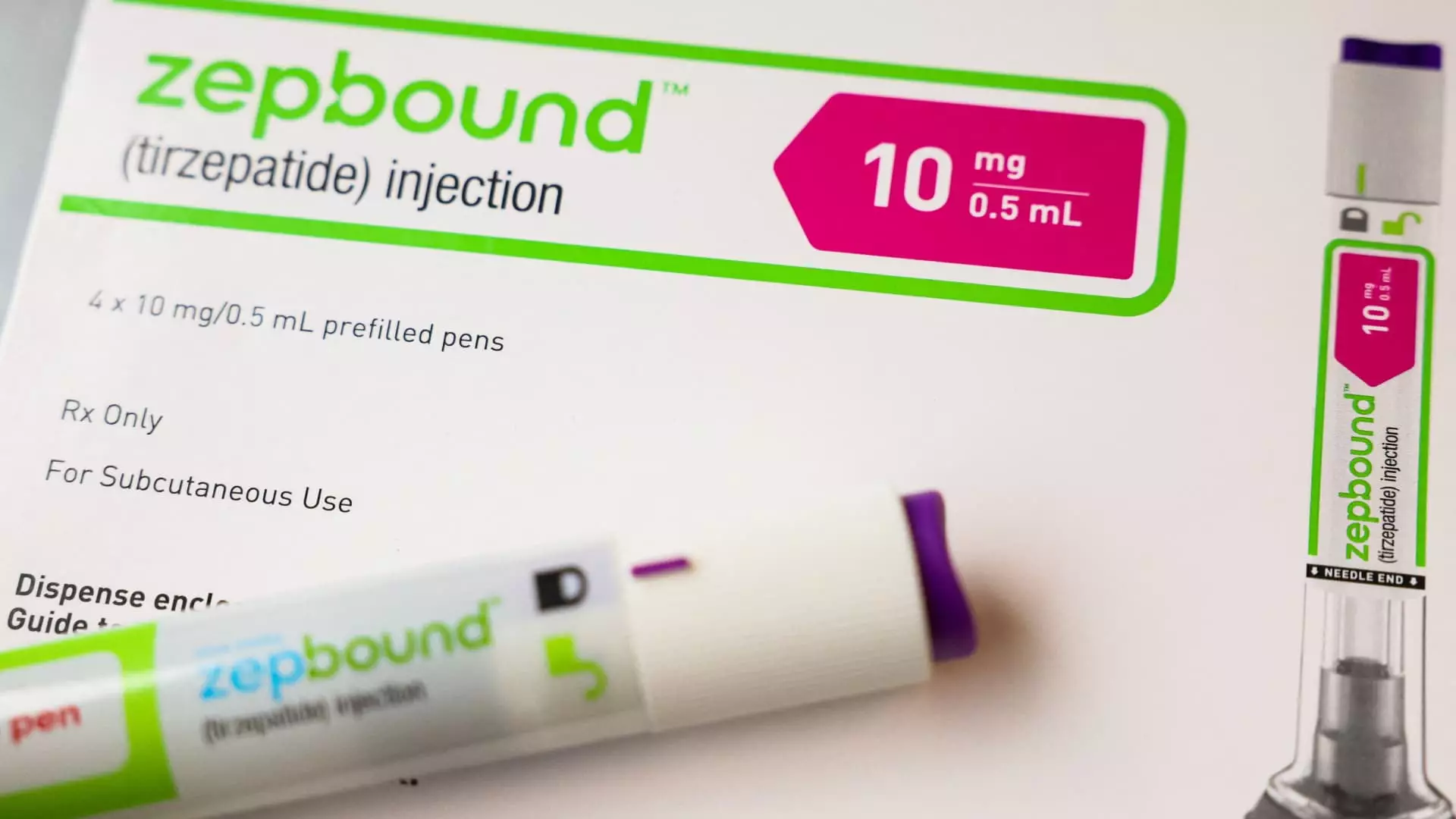In a significant development for obesity treatment, Eli Lilly has taken proactive measures to enhance the accessibility of its weight loss medication, Zepbound. By releasing higher doses of Zepbound in single-dose vials at reduced prices, the company aims to cater to a wider audience, particularly those without insurance coverage. This article explores the implications of Eli Lilly’s new strategy, assesses the pricing changes, and reflects on the broader context of obesity treatment in the United States.
On a recent Tuesday, Eli Lilly made headlines by simplifying the process through which potential patients can access higher doses of Zepbound, their groundbreaking weight loss drug. By introducing single-dose vials available directly to consumers via their LillyDirect website, the company seeks to alleviate the burden for many individuals, particularly those enrolled in Medicare or those whose employer-sponsored health plans do not cover obesity-related treatments. This change represents a notable shift in Eli Lilly’s approach to market its product in the face of rising demand amid ongoing health concerns surrounding obesity.
Historically, patients seeking weight management solutions often encountered obstacles due to prohibitive pricing. This resulted in many turning to compounded alternatives from pharmacies, which can pose safety risks due to insufficient regulation and quality assurance. Eli Lilly aims to combat this issue by promoting the use of their FDA-approved product, thereby discouraging reliance on these unregulated alternatives.
Eli Lilly’s pricing strategy reflects an increasing sensitivity towards affordability in healthcare. Recent announcements revealed that the company will offer the new 7.5 milligram and 10 milligram doses at a starting price of $499 per month for initial prescriptions, followed by slightly higher costs for refills beyond a certain timeframe. This is a price reduction when compared to the previous autoinjector pens, which can cost around $1,000 monthly. Furthermore, Eli Lilly also took the initiative to lower the prices of their lower-dose vials, allowing for a more competitive pricing structure in the obesity treatment sector.
The emphasis on single-dose vials highlights the company’s commitment to making Zepbound more accessible, particularly as they are easier to manufacture than the more complex autoinjector pens. This strategy not only expands supply but also ensures that the product remains within the financial reach of patients who are willing to pay out-of-pocket.
A significant concern remains regarding the coverage of obesity medication under Medicare, as many beneficiaries do not have access to affordable solutions due to current regulations. Eli Lilly’s president of diabetes and obesity, Patrik Jonsson, articulated the company’s desire to fill the gap left by the lack of comprehensive coverage for obesity treatments, asserting their mission to provide more affordable options for those affected. In an ideal scenario, Jonsson hopes that legislative changes will occur to support Medicare coverage for these crucial medications.
Additionally, Eli Lilly has positioned their single-dose vials as a reliable alternative amidst a backdrop of skepticism towards weight-loss drugs from certain health officials. The company’s commitment to keeping patients informed and safe shows a dedication to maintaining high standards of safety, efficacy, and quality in medication.
As the demand for effective obesity management solutions continues to rise, Eli Lilly asserts that expanding access to Zepbound through LillyDirect is just the beginning. By enabling connections with telehealth services that prescribe the drug, they are leveraging technological advancements to simplify the healthcare experience for consumers. Also, the introduction of home delivery through third-party pharmacies helps to ensure convenience and adherence to treatment protocols.
While Eli Lilly has not disclosed the specific uptake of their new vials, they report positive reception from the marketplace. As they continue to monitor the growth of Zepbound’s prescriptions through self-pay avenues, it will be crucial for the company to remain agile in response to patient needs and market dynamics.
Overall, Eli Lilly’s recent strategy to enhance accessibility for Zepbound drives conversations about the challenges of obesity treatment in the United States. Offering viable, safe options at reduced prices is a step in the right direction, but broader systemic changes are necessary to pave the way for comprehensive care for obesity, a condition increasingly recognized as a chronic disease that deserves attention equal to other health concerns.

